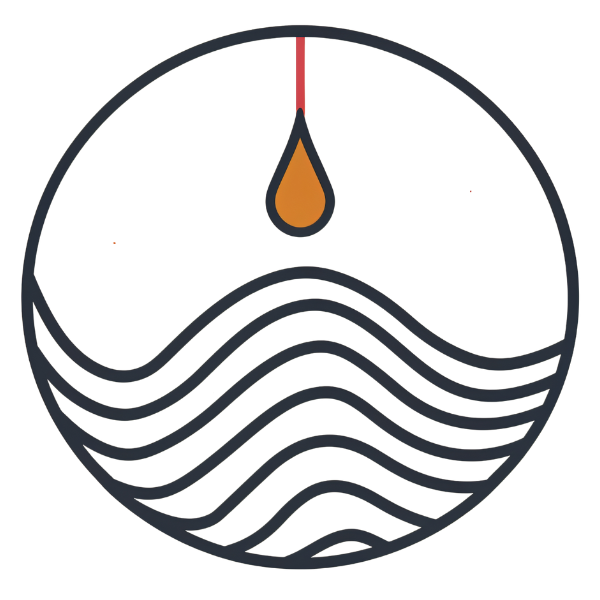
The Essential Health Benefits of Vitamin D3: Why Everyone Needs It
Share
Vitamin D3 , often referred to as the " sunshine vitamin ," is one of the most crucial nutrients for our health. While it is best known for its role in promoting strong bones, its importance extends to vitamin D3 much further than that. This vitamin is involved in countless bodily processes, from supporting the immune system to promoting mental health. In countries like Belgium, the Netherlands and France, where sunshine is limited, especially during the winter months, the importance of vitamin D3 supplementation cannot be underestimated. In this article, we explore the many benefits of vitamin D3 in depth and answer frequently asked questions about this essential supplement.
What is Vitamin D3 and Why Do You Need It?
Vitamin D3, or cholecalciferol, is a form of vitamin D that our bodies produce when our skin is exposed to sunlight. This fat-soluble vitamin is essential for maintaining healthy bones, a strong immune system, and stable mental health. Vitamin D3 helps your body absorb calcium and phosphorus, which are essential for strong bones and teeth. It also plays a crucial role in regulating immune function and reducing inflammation.
The Top Health Benefits of Vitamin D3
-
Strengthening the Immune System
One of the most impressive benefits of vitamin D3 is its immune system boosting. Several studies show that people with sufficient vitamin D3 less likely to develop infections such as the flu and colds. This is because vitamin D3 stimulates the production of antimicrobial peptides, which help the body fight off pathogens. View a study here which confirms these benefits.
-
Support for Strong Bones and Teeth
It is well known that vitamin D3 is essential for healthy bones. It helps your body absorb calcium, a mineral that is crucial for bone density. Without enough vitamin D3, your body cannot absorb calcium, which can lead to weak bones, osteoporosis, and an increased risk of fractures. This is especially important for older adults who are at increased risk of bone loss. Read more about this in this study .
-
Improving Mental Health
Recent research points to a strong link between vitamin D3 and mental health. Low levels of vitamin D3 have been associated with an increased risk of depression, anxiety disorders and even dementia. This is because vitamin D3 is involved in the production of neurotransmitters such as serotonin, which play an important role in regulating our mood and emotional well-being. More about this in this study .
-
Support of Muscle Function
Vitamin D3 plays a crucial role in maintaining muscle strength. Especially in the elderly, a vitamin D3 deficiency can lead to muscle weakness and an increased risk of falls and fractures. By consuming sufficient vitamin D3 By getting it inside, you can maintain your muscle function and improve your mobility. See this study for details .
-
Reduction of Inflammation
Chronic inflammation underlies many serious diseases such as cardiovascular disease, diabetes and autoimmune diseases. Vitamin D3 has strong anti-inflammatory properties, helping to reduce inflammation in the body and lower the risk of these chronic conditions. See a relevant study here .
| 🏋️♂️ | 💪 | 🧠 | 💡 | 🦷 |
|---|---|---|---|---|
| Strong Muscles | Strengthened Immune System | Improving Mental Health | Supports Bones | Healthy Teeth |
Frequently Asked Questions about Vitamin D3
How much vitamin D3 do I need per day?
The recommended daily allowance of vitamin D3 varies depending on age, skin color, and living conditions. For adults, the recommended intake is generally between 800 and 1000 IU per day, but may be higher for people at increased risk of deficiency, such as the elderly or people who get little sunlight.
What are the symptoms of a vitamin D3 deficiency?
A shortage of vitamin D3 can lead to symptoms such as tiredness, muscle weakness, bone pain and an increased risk of infections. In severe cases it can lead to osteomalacia (softening of the bones) in adults and rickets in children.
| 😴 | 🦴 | 😷 | 😞 |
|---|---|---|---|
| Fatigue | Bone pain | Increased risk of infections | Depression |
Can I get too much vitamin D3?
Although rare, it is possible to get too much vitamin D3, which can lead to hypercalcemia, a condition in which the calcium level in the blood is too high. This can cause symptoms such as nausea, vomiting, weakness and in severe cases, kidney damage. It is important to stick to the recommended dosages and consult a doctor if you are unsure.
Who is most at risk for vitamin D3 deficiency?
People who spend little time outdoors, have dark skin, or live in northern climates such as Belgium and the Netherlands, are at greater risk of vitamin D3 deficiency. Older adults and people with obesity are also at increased risk, because their bodies produce and store vitamin D3 less efficiently.
| 👵 | 🌑 | 🖤 | 🏠 |
|---|---|---|---|
| Elderly | Little Sunlight | Dark Skin | Little Outdoors |
Is vitamin D3 important during pregnancy?
Yes, vitamin D3 is essential during pregnancy. It helps with the development of the fetus' bones and teeth and can help prevent complications such as gestational diabetes and preeclampsia. Pregnant women are often advised to take their increase vitamin D3 intake, especially if they live in an area with little sunlight.
What is the difference between vitamin D2 and D3?
Vitamin D3 (cholecalciferol) and vitamin D2 (ergocalciferol) are two forms of vitamin D. Vitamin D3 is the form that is naturally produced in our bodies and is more effective at increasing vitamin D levels in the blood. For this reason, D3 is more often recommended as a supplement.
How do I get enough vitamin D3 if I don't spend much time outside?
If you spend little time outdoors, for example due to work or health, vitamin D3 supplementation may be necessary to prevent deficiencies. In addition, you can try to include foods rich in vitamin D3 in your diet, such as oily fish, eggs and fortified dairy products.
| 🐟 | 🥚 | 🧀 | 🥛 |
|---|---|---|---|
| Fatty Fish | Eggs | Cheese | Enriched Dairy |
Can I vitamin D3 take all year round?
Yes, it is actually recommended to take vitamin D3 all year round, especially in countries where sunlight is limited during the winter months. By taking vitamin D3 all year round, you can ensure that your levels remain constant, even when you are not getting enough sunlight.
Vitamin D3 and Disease Prevention
In addition to the benefits mentioned earlier, research shows that vitamin D3 may help reduce the risk of several chronic diseases. Research suggests that adequate levels of vitamin D3 may reduce the risk of heart disease, multiple sclerosis, and certain cancers. For example, a recent study highlighted that higher vitamin D3 levels are associated with a lower risk of colorectal cancer and breast cancer. The importance of vitamin D3 in preventing such serious conditions further underscores why it is essential to ensure you get enough.
Vitamin D3 for Seniors: Why It's Extra Important
For the elderly, vitamin D3 is vital. As we age, our ability to vitamin D3 to produce, and we become more susceptible to bone loss and muscle weakness. This can lead to an increased risk of falls and fractures, which can significantly affect mobility and quality of life. Supplementing with vitamin D3 can help reduce these risks and support bone and muscle health.
Vitamin D3 and Heart Health
There is growing evidence that vitamin D3 also plays a role in promoting healthy heart function. Low levels of vitamin D3 have been linked to an increased risk of high blood pressure, heart attacks, and other cardiovascular problems. Although more research is needed, current data suggest that vitamin D3 may help reduce inflammation and improve cardiovascular health.
Why Vitamin D3 is Essential for People in Belgium, the Netherlands and France
In countries such as Belgium, the Netherlands and France, where the sun is often weak, especially in the winter months, it is difficult to get enough vitamin D3 from sunlight alone. This means that many people in these regions are at risk of a deficiency. Supplementation can be an effective way to prevent this deficiency and experience the many health benefits of vitamin D3.
How to Choose Vitamin D3 Supplements
When choosing a vitamin D3 supplement, it is important to pay attention to the dosage and the quality of the product. Choose a supplement that meets the recommended daily allowance, unless your doctor tells you otherwise. Also consider choosing a supplement that is combined with vitamin K2, which helps with the proper absorption of calcium and prevents it from depositing in the arteries.
By strengthening your immune system, supporting strong bones and teeth, and promoting a healthy mental state, vitamin D3 an essential supplement for everyone, especially in regions with limited solar radiation. Whether you are trying to improve your health or prevent specific health conditions, maintaining adequate vitamin D3 levels is an important step toward better health overall health .
| 🌞 | 💊 | 🚶 | ❤️ |
|---|---|---|---|
| Sunshine in a Pill | Easy to take | Improved Mobility | Heart health |
Discover your Ideal Product with Our Health Test
Want to know which supplements best suit your specific health needs? Take our health test! This test will help you find the ideal product that perfectly suits your lifestyle and goals. Visit our health test and receive personalized advice.
